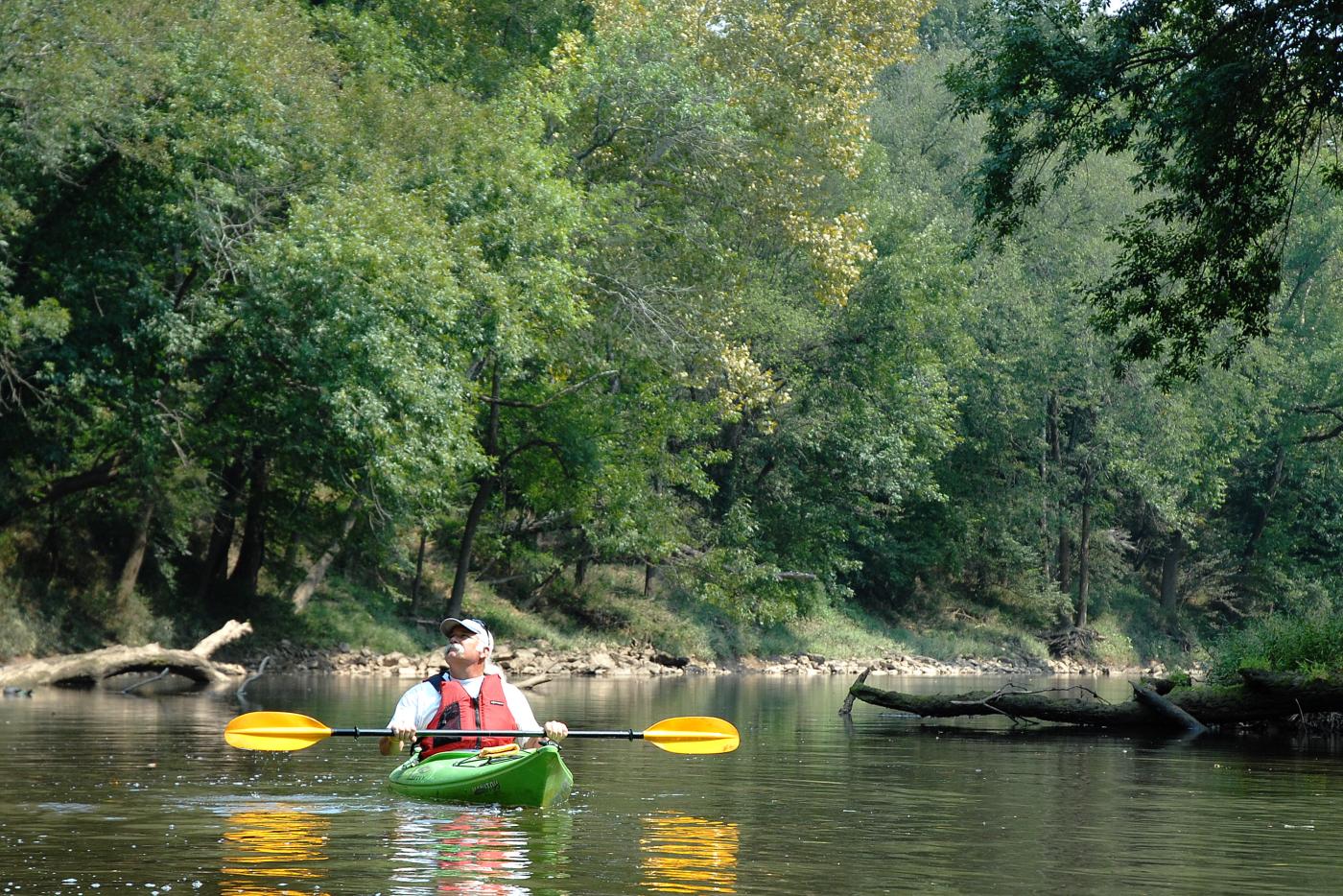North Carolina State Parks, part of the Department of Natural and Cultural Resources, will host a ribbon-cutting event Friday, Oct. 24, at the newly opened Moncure paddle access on the Deep River. Speakers include North Carolina House Democratic Leader Robert Reives II, DNCR Deputy Secretary Jeff Michael, State Parks Director Brian Strong, and representatives from the Piedmont Land Conservancy and Triangle Land Conservancy.
Date: Friday, Oct. 24
Time: 10 a.m.
Location: Moncure Access, 7140 Moncure Pittsboro Road, Moncure, NC 27759
A short paddle to enjoy the river will follow the program. Endor Paddle, through Cape Fear River Adventures, is offering free use of a limited number of kayaks, but visitors are encouraged to bring their own kayak and personal flotation device.
The Moncure access is the first state trail access managed by North Carolina State Parks outside the boundaries of a state park. Though state trails are part of the state parks system, they mostly rely on partnerships with federal and state agencies, local governments, and private landowners to sponsor, build, maintain, and manage a section of or an access on a state trail. State Parks oversees the overall corridor planning and coordination, providing guidance and assistance to all section sponsors, but sponsors retain authority on lands under their jurisdiction.
Deep River State Trail was authorized by the N.C. General Assembly in 2007 as a land-based and paddle trail. It starts at the Deep River's headwaters in Jamestown and traverses 125 miles through Guilford, Randolph, and Moore counties, before forming the border between Chatham and Lee counties, and ending at its confluence with Cape Fear and Haw rivers.
Segments of the trail and paddle accesses on the river must be designated by the Secretary of DNCR to be officially added to state trails. To date, DRST has 4.28 miles of land-based trail and 12.15 miles of river between designated access points.
Piedmont Land Conservancy is the state trail partner for DRST. PLC works with a larger steering committee, which includes representatives from local governments along the river, to prioritize projects funded by the Complete the Trails Program, first authorized by the General Assembly in 2021.
Triangle Land Conservancy first acquired the land parcel as part of a larger acquisition to protect lands along the Deep River. TLC continues to manage nearby White Pines Nature Preserve, but in 2005, the state acquired the 760-acre parcel that is now the Moncure Access.
The $1.7 million construction project at the access was funded by the Connect NC Bond. CLH design in Cary designed the project and BAR Construction Company in Greensboro was the general contractor.
The Deep River Moncure Access offers a paddle launch for kayaks and canoes, a vault toilet, and parking. Additional facilities, including trails, are planned for the future. It is now open from dawn to dusk and managed by staff at Jordan Lake State Recreation Area.
About the North Carolina Division of Parks and Recreation
The Division of Parks and Recreation manages more than 264,000 acres of iconic landscape within North Carolina’s state parks, state recreation areas and state natural areas. It administers the N.C. Parks and Recreation Trust Fund, including its local grants program, as well as a state trails program, North Carolina Natural and Scenic Rivers and more, all with a mission dedicated to conservation, education, and recreation. The state parks system welcomes more than 19 million visitors annually.
About the North Carolina Department of Natural and Cultural Resources
The N.C. Department of Natural and Cultural Resources (DNCR) manages, promotes, and enhances the things that people love about North Carolina – its diverse arts and culture, rich history, and spectacular natural areas. Through its programs, the department enhances education, stimulates economic development, improves public health, expands accessibility, and strengthens community resiliency.
The department manages over 100 locations across the state, including 27 historic sites, seven history museums, two art museums, five science museums, four aquariums, 35 state parks, four recreation areas, dozens of state trails and natural areas, the North Carolina Zoo, the State Library, the State Archives, the N.C. Arts Council, the African American Heritage Commission, the American Indian Heritage Commission, the State Historic Preservation Office, the Office of State Archaeology, the Highway Historical Markers program, the N.C. Land and Water Fund, and the Natural Heritage Program. For more information, please visit www.dncr.nc.gov.

